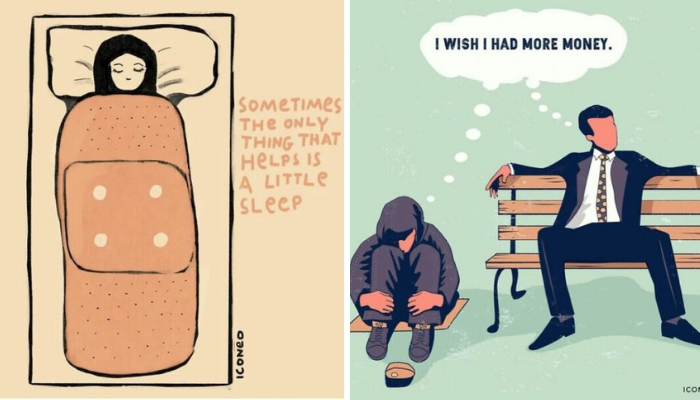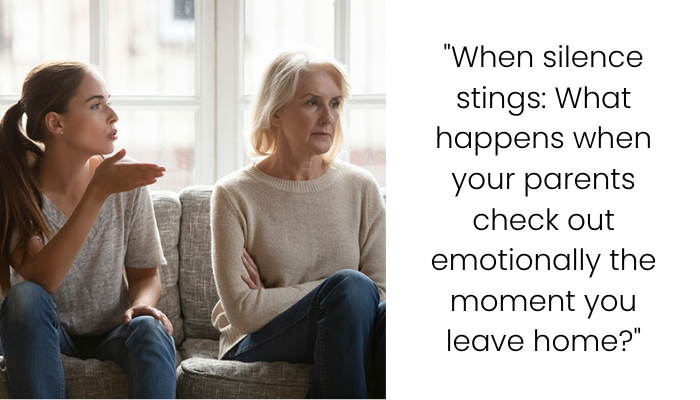“You’re Embarrassing Yourself”: Gym Ghosting Turns Awkward as Boundaries Fray

A regular gym-goer found himself at a crossroads when a fellow member, “Andrea,” began persistently engaging after he declined her romantic interest. Their interaction escalated after he snapped at her during a tense moment on the gym floor, telling her she was “embarrassing herself.” This confrontation sparked a ripple of embarrassment—triggering a loud weight slam that caught everyone’s attention. Though Andrea initially left, she later apologized, proposed a truce over drinks, and challenged his intentions with an accusation about bias. The tense reunion led to further deflection and discomfort, culminating in a mutual agreement to steer clear and maintain distance.
Advertisement – Continue Reading Below
Lashing out at people is most probably not the wisest way to handle any type of rejection

The poster met a woman (Andrea) at his gym, and after a few conversations, she asked him out, but he declined














Psychological Landscape: Unspoken Power & Emotional Weight
1. Gym Anxiety & Gendered Dynamics
Studies consistently show that gyms—especially weightlifting areas—often feel like male-dominated spaces where women face heightened scrutiny. In a PLOS One survey of 279 gym-goers, 72 % of women reported unsolicited comments from men; 39 % felt intimidated by male gym-goers, describing feelings like being “creeped out,” “unworthy,” or “unsafe” thetimes.co.uk+1journals.plos.org+1.
Another college-level psychology report emphasized how women grapple with fear and judgment—both self-imposed and external—around performance, attire, and being perceived as overstaying their “space” .
Your story illustrates this imbalance. For Andrea, stepping close during your workout could have felt like an involuntary test of her space—especially after your blunt confrontation. The emotional stakes were high: embarrassment, insecurity, possible humiliation. And your reaction—though defensive—likely triggered her sense of crossing an unspoken boundary.
Advertisement – Continue Reading Below
2. Spotlight Effect & Misinterpretation
Psychology highlights the “spotlight effect”: our tendency to overestimate how much others notice us thetimes.co.uk+2journals.plos.org+2nypost.com+2en.wikipedia.org. Andrea may have assumed your avoidance was a personal slight beyond simple discomfort—perhaps even rejection or dismissal based on her gender or background.
Similarly, your perception of escalation—her foot on weights, your bar slamming—may have felt dramatic to you in the moment, even if onlookers didn’t interpret it as threatening. These heightened emotional states amplify tension, causing minor confrontations to spiral.
3. Emotional Fallout & Uncomfortable Spaces
Unwanted confrontations in neutral zones—like the gym—can produce lasting stress, anxiety, or avoidance. Research shows that non-physical sexual harassment, even a single comment, can trigger anxiety, reduced confidence, and avoidance behavior † especially among women, but affecting all genders time.com.
In the gym context, studies show 44 % of women stop workouts prematurely due to unwanted attention The mental burden of “what-ifs” can deter routine visits—exactly the kind of mood Andrea might be navigating post-incident.
⚖️ Boundary Breaches: Legal & Personal Standards
1. Gym-As-Workplace? Liability & Harassment Policies
Fitness centers are increasingly treated like workplaces: they’re expected to maintain safe environments and enforce anti-harassment policies. Federal (EEOC) enforcement covers harassment based on protected characteristics, including gender and national origin
If Andrea felt humiliated or harassed—especially after calling you a “prick” and referencing your ethnicity—management could have ethical, possibly legal, reasons to intervene. Many gyms adopt zero-tolerance harassment policies modeled after workplace standards commitfitnessco.com.
Advertisement – Continue Reading Below
2. Non-Physical Harassment Can Be Actionable
Even gestures or words short of physical violence can breach harassment laws if they cause undue distress. In the UK, repeated unwanted conduct creating distress can constitute legal harassment ; in the US, ongoing unwelcome conduct can contribute to a hostile environment—especially when rooted in rejection.

Your “stay away” and “embarrassing herself” comment—especially piercing in public—could be seen as emotionally injurious. Combined with your bar slam, she may have felt publicly humiliated, which might be captured under workplace-style codes of conduct.
👥 Real-World Case Studies & Precedents
1. Fitness Industry Harassment Lawsuits
There have been several lawsuits and high-profile cases where trainers were disciplined—or gyms sued—over harassment. A 2024 blog from a prominent injury law firm highlights how trainers must maintain strict boundaries; any comment or behavior crossing into personal or sexual territory could trigger disciplinary responses or legal claims .
Advertisement – Continue Reading Below
2. Policy Enforcement in Gyms
Gyms now regularly install grievance processes and train staff to handle conduct issues—especially after sexual harassment claims. The EEOC encourages proactive policies and immediate corrective action .
Your decision to tell staff Andrea stepped on weights was aligned with this kind of policy enforcement. Yet policies are ideally impartial: you’d report behavior regardless of gender. If your motive was discomfort rather than concern about safety, that may complicate perceptions of fairness.
⚠️ Deeper Social Implications: Ethnicity, Gender & the Clash of Biases
1. Intersectionality & Accusations of Bias
When Andrea confronted you—asking if your issue was her being Hispanic—she highlighted something important: conflict can often mask deeper wounds of prejudice. Although you denied it, perceptions matter. Studies show minority groups often walk on egg shells when feeling unsafe around majority groups; conversely, sudden rejection may seem driven by race or gender .
Her question, though charged, reflected insecurity many marginalized people feel—are they being singled out for who they are, rather than what they did?
Advertisement – Continue Reading Below

2. Masculine Spaces & Power Imbalances
News reports confirm gyms still skew masculine; a viral video highlighted how men interrupt women’s workouts—intentionally or not—and women often feel pushed aside thetimes.co.uk+1nypost.com+1. What may look like incidental interaction can feel like dominance.
Your public criticism—particularly directed at her ethnicity—can subtly reinforce power imbalances. It’s less about intent and more about impact: women and minorities often internalize social reprimands in these spaces, which reinforces exclusion.
🛠️ Emotional Conflict: Your Inner Struggle
1. Avoidance vs. Compassion
You describe avoiding Andrea—not out of malice but to regain emotional control. This aligns with self-preservation instincts; conflict in public, especially after “bad days,” can feel overwhelming.
However, social norms often favor either clear communication or polite disengagement. “Avoiding” can be misread as coldness or avoidance of accountability, which complicates reconciliation later.
2. Emotional Outburst as Self-Defense
Labeling her “embarrassing herself” during your bad day signals emotional overflow—like a pressure valve releasing after prolonged stress. Slamming weights, though reflexive, was a form of unspoken protest. Onlookers may not register the intent—but you did, and that matters.
Advertisement – Continue Reading Below
📌 Moving Forward: Emotional and Ethical Resolutions
| Goal | Action |
|---|---|
| Emotional Clarity | Consider an apology beyond “stay away.” Acknowledge environments contributed—namely stress and miscommunication. |
| Boundary Setting | Silence can escalate tension. If neither of you intends friendship, a short clarifying conversation—outside gym hours—can prevent similar confrontations. |
| Promote Gym Policy | Support the idea of staff reinforcing zero-tolerance harassment: report concerns equitably, suggesting clearer boundaries and communication training for members. |
| Personal Growth | Reflect on how stress and refusal intersected here. Research suggests individuals prone to emotional spikes may lack de-escalation strategies † consider mindful responses over defensive gestures. |
| Awareness of Legal and Social Norms | Recognize this as more than a personal dispute. Unwanted verbal confrontation in semi-professional spaces (like gyms) can impact reputations and mental wellbeing. |
Netizens claimed that Andrea sounds like a creepy stalker, and some even suggested ideas he could use to get rid of her






✍️ In Conclusion: A Human Story in a Complex Setting
What happened is far from a simple personal clash—it reflects deep undercurrents in modern gym culture: gender imbalance, emotional overload, power and bias, public-private boundaries, and legal grey areas. At the heart of it, each voice is emotionally fraught—Andrea, likely feeling judged and insecure; you, feeling overwhelmed, frustrated, and seeking peace.
By understanding the broader context—psychological research, legal precedents, and social environment—you can empathize with everyone’s experience while drawing clear emotional and ethical lines. Owning your part, both in intent and impact, can transform a painful incident into a learning moment—one that fosters respect, accountability, and room for growth.






